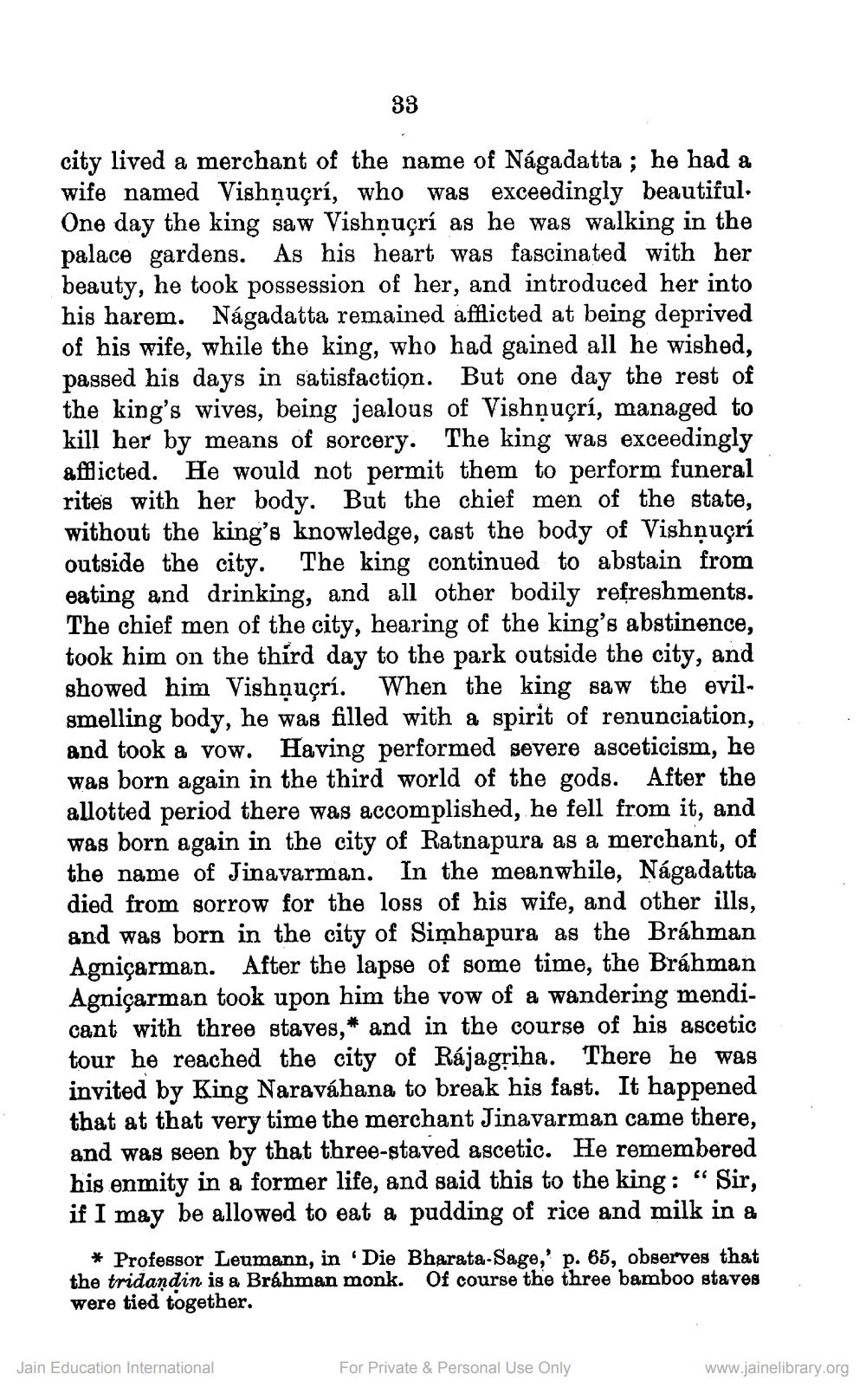________________
33
city lived a merchant of the name of Nágadatta; he had a wife named Vishnuçrí, who was exceedingly beautiful. One day the king saw Vishnuçrí as he was walking in the palace gardens. As his heart was fascinated with her beauty, he took possession of her, and introduced her into his harem. Nágadatta remained afflicted at being deprived of his wife, while the king, who had gained all he wished, passed his days in satisfaction. But one day the rest of the king's wives, being jealous of Vishnuçrí, managed to kill her by means of sorcery. The king was exceedingly afflicted. He would not permit them to perform funeral rites with her body. But the chief men of the state, without the king's knowledge, cast the body of Vishnuçrí outside the city. The king continued to abstain from eating and drinking, and all other bodily refreshments. The chief men of the city, hearing of the king's abstinence, took him on the third day to the park outside the city, and showed him Vishnuçrí. When the king saw the evilsmelling body, he was filled with a spirit of renunciation, and took a vow. Having performed severe asceticism, he was born again in the third world of the gods. After the allotted period there was accomplished, he fell from it, and was born again in the city of Ratnapura as a merchant, of the name of Jinavarman. In the meanwhile, Nágadatta died from sorrow for the loss of his wife, and other ills, and was born in the city of Simhapura as the Brahman Agniçarman. After the lapse of some time, the Brahman Agniçarman took upon him the vow of a wandering mendicant with three staves, and in the course of his ascetic tour he reached the city of Rájagriha. There he was invited by King Naraváhana to break his fast. It happened that at that very time the merchant Jinavarman came there, and was seen by that three-staved ascetic. He remembered his enmity in a former life, and said this to the king: "Sir, if I may be allowed to eat a pudding of rice and milk in a
*
* Professor Leumann, in 'Die Bharata-Sage,' p. 65, observes that the tridandin is a Brahman monk. Of course the three bamboo staves were tied together.
Jain Education International
For Private & Personal Use Only
www.jainelibrary.org




